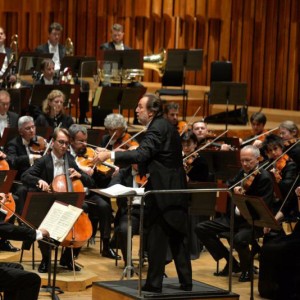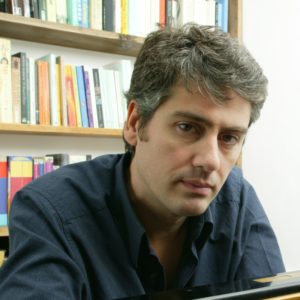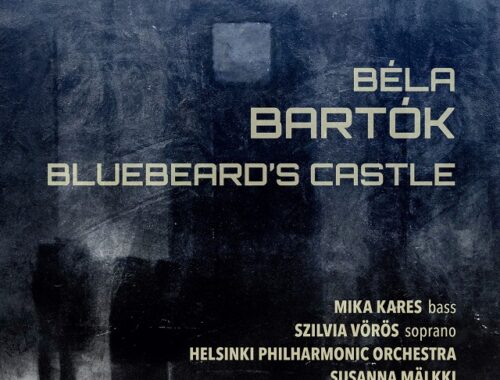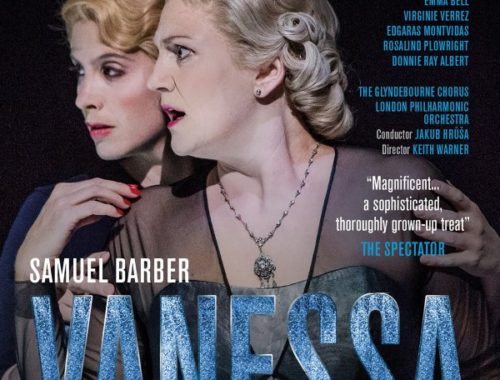Leipzig Gewandhaus Orchestra, Chailly, Barbican
 There’s an old conductor’s adage which suggests that the only way safe to start Strauss’ Don Juan is to start before the applause has died – that way no one hears any imperfections in the upward rush of strings. Remembering those words made me smile as Riccardo Chailly and his magnificent Leipzig orchestra leapt as one from the starting blocks, stretching every sinew of Strauss’ youthful tone poem as if the imperative of the piece was directly proportionate to the Don’s sexual prowess. Virility and ardour and a kind of reckless abandon were key here but equally there was this extraordinary skill Chailly has of creating space in moments of repose. The transition into the lyric second theme had us breathing the rarefied air of that episode long before the melody took shape.
There’s an old conductor’s adage which suggests that the only way safe to start Strauss’ Don Juan is to start before the applause has died – that way no one hears any imperfections in the upward rush of strings. Remembering those words made me smile as Riccardo Chailly and his magnificent Leipzig orchestra leapt as one from the starting blocks, stretching every sinew of Strauss’ youthful tone poem as if the imperative of the piece was directly proportionate to the Don’s sexual prowess. Virility and ardour and a kind of reckless abandon were key here but equally there was this extraordinary skill Chailly has of creating space in moments of repose. The transition into the lyric second theme had us breathing the rarefied air of that episode long before the melody took shape.
Of course, the big moments were thrilling, urged on by great flourishes from those handsome string basses and a first trumpet of fearless cut and thrust – but come the return of the stirring horn theme Chailly gave that uplifting hand-over to the violins just a hint of expansion in the rubato so that they could flesh out the tone for all it was worth.
It was, of course, a neat idea for this first concert in Chailly’s Strauss sojourn to pair Don Juan with Strauss’ heroic “selfie” Ein Heldenleben. The Don is alluded to both in themes and spirit as Strauss’ ego takes a grand tour through his achievements to date, leavening the self-importance with a sense of fun (those bickering critics) and – at the last – a quiet nobility. It’s the sort of piece you write at the end of your life – not half way through – but Strauss wasn’t going to wait until then – and for all the self-indulgence the dazzling invention and audacity of it all still knocks one for six. The “Battle with the Critics”, written more than a decade before Stravinsky’s Rite of Spring, is an astonishing piece of musical radicalism, a teeming collage of conflict and triumphalism with more than a touch of Charles Ivesian capriciousness. The Leipzigers played the hell out of it – though Chailly’s slightly unyielding approach to the piece as a whole might not have been to everyone’s taste. Strauss’ audacity was everything in this reading but my goodness it was exciting.
In between the super-sized servings of Strauss Maria Joao Pires played Mozart’s Piano Concerto No.27 K.595 with simplicity and directness and a disarming honesty and clear projected tone. She generally does. But with Mozart on the cusp of a whole new romantic era, is it everything, is it enough? Not for me. The fantasy is implicit in the music and yet the magic resolutely refused to descend. And in achieving what Pires clearly strives for – a classical purity – a coolness and, dare I say it, a plainness prevails. I just didn’t feel much of anything at all.
One final thought regarding the remaining concerts: why choose to do Also Sprach Zarathustra in a hall with no organ? Perhaps instead of a new concert hall they could install one?
You May Also Like

A Conversation With DARIO MARIANELLI
02/09/2011
GRAMOPHONE: From Where I Sit – August 2021
12/08/2021
One Comment
Nick Wraight
The Barbican Hall was to have an organ, there is at least one extant design by “Grant, Degens and Bradbeer” – a no longer existing neo-classical British builder, their magnum opus being in the Chapel at New College Oxford. I suspect the hall / stage design went through various incarnations during which the pipe organ idea was quietly dropped… There is no room for one now and hence “electric toasters” are brought in when required!